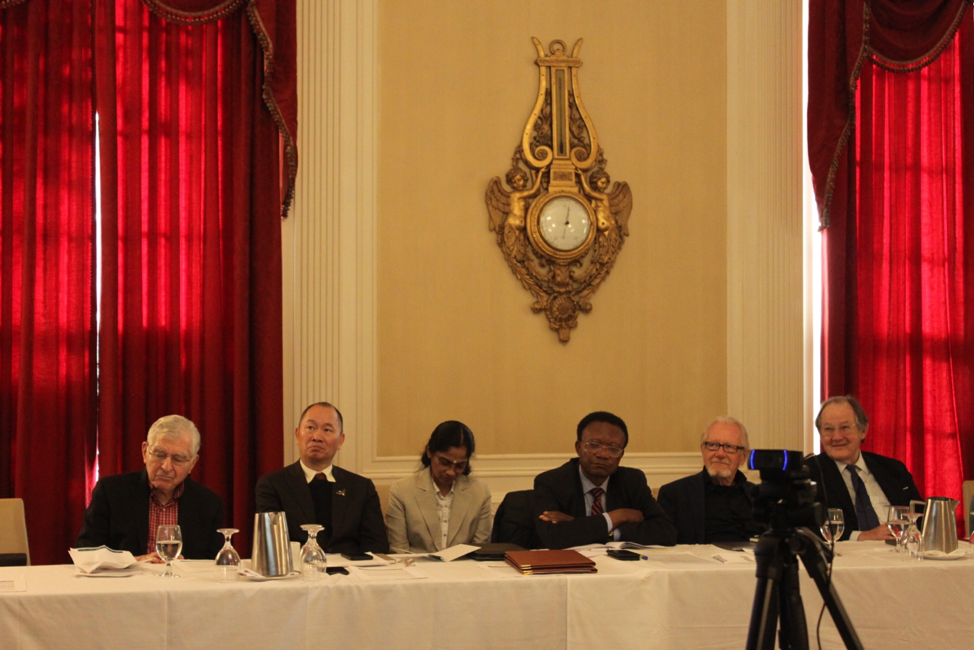
by Editor | Apr 14, 2024 | Global Alliance for Digital Governance
Boston, MA, April 15, 2024
In the rapidly evolving landscape of artificial intelligence (AI), the need for a comprehensive knowledge platform has never been more pressing. As AI systems continue to permeate various aspects of our lives, from healthcare and finance to transportation and entertainment, the importance of having a centralized repository of knowledge to inform decision-making processes is paramount. Due to this necessity, the Boston Global Forum has conceived the Knowledge Platform for AI Systems. This Knowledge Platform can serve as an essential resource, providing a foundation upon which AI applications and systems can reference, think critically, and make informed decisions.
Rooted in ethics and standards, this platform can offer guidance and reference points for individuals navigating the complexities of artificial intelligence. Emphasizing humanity, compassion, and moral judgement, it embodies a commitment to fostering ethical practices and responsible use of AI technologies. By integrating intellectual rigor with ethical considerations, the platform empowers users to make informed decisions that align with ethical principles and societal values, promoting integrity, fairness, and accountability in AI applications across various domains.
At its core, the Knowledge Platform for AI Systems seeks to aggregate and organize vast amounts of data, information, and expertise from diverse sources, both modern and historical. It encompasses the Social Contract for the AI Age, standard values of AI World Society (AIWS), historical data, norms, ethics, and background information from politics, science, and the economy. By consolidating this wealth of information into a single, accessible platform, AI systems can draw upon a wide range of insights to enhance their understanding and decision-making capabilities.
Boston Global Forum will unveil “the Knowledge Platform for AI Systems” at the BGF Conference, where Dr. Alondra Nelson will be honored with the 2024 World Leader in AIWS Award at Harvard University Loeb House on April 30, 2024.

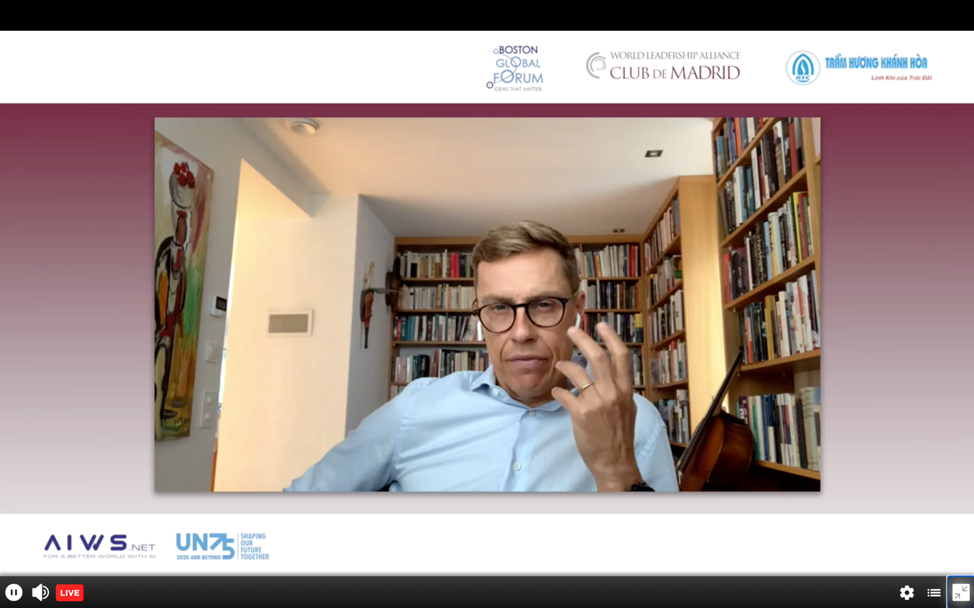
by Editor | Feb 20, 2024 | News
Dear Alexander Stubb,
On behalf of the Boston Global Forum, we extend our heartfelt congratulations to you on your election as the President of Finland. This momentous occasion is a testament to your exemplary leadership, dedication, and vision for the betterment of your nation and the world.
We are privileged to have had the opportunity to collaborate with you on numerous occasions, including your participation and insightful contributions to the special conference about the Social Contract for the AI Age of AIWS, co-organized by the Boston Global Forum and World Leadership Alliance-Club de Madrid in September 2020. Your presence and expertise enriched the discussions and propelled us towards crafting innovative solutions for the challenges of the AI era.
Furthermore, your unwavering commitment to the AI World Society Initiative and your invaluable contributions to various Boston Global Forum conferences as a Global Enlightenment Leader have left an indelible mark on our community. Your vision, intellect, and passion for positive change have inspired countless individuals worldwide.
As you embark on this new chapter of leadership, we have every confidence that you will continue to uphold the principles of integrity, inclusivity, and progress that define your distinguished career. Your presidency holds the promise of advancing Finland’s prosperity, fostering international cooperation, and championing the values of democracy and human rights.
Once again, congratulations on your well-deserved appointment. We look forward to witnessing the remarkable achievements that lie ahead under your guidance.
With warm regards,
Michael Dukakis
Co-founder and Chair
Boston Global Forum
Nguyen Anh Tuan
Co-founder and CEO
Boston Global Forum

President Alexander Stubb at the Boston Global Forum – Club de Madrid Conference in September 2020 on the Social Contract for the AI Age
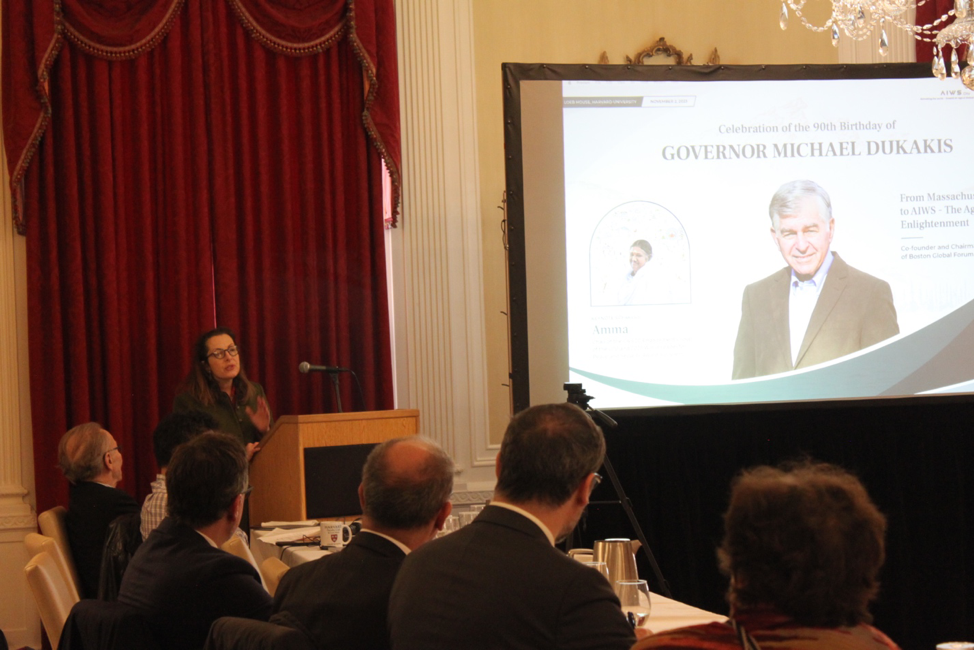
by Editor | Dec 10, 2023 | Global Alliance for Digital Governance
Boston, December 12, 2023 – In a landmark initiative, prominent scientists, strategists and policy makers are joining forces to redefine the public narrative surrounding artificial intelligence (AI), grounding it in the science of computational physics, biology, and neuroscience. The Active Inference Institute and the Boston Global Forum, through a joint letter signed by leading experts, announce a pivotal effort to reshape the discourse on AI.
Titled “A Natural AI Based on The Science of Computational Physics, Biology, and Neuroscience: Policy and Societal Significance,” the letter addresses the remarkable advancements in AI, especially Large Language Models (LLMs) and Transformer models. While acknowledging their achievements, the letter underscores concerns about the lack of scientific principles guiding their development and the absence of independent performance standards.
Signatories emphasize that current LLMs and Transformer models are “corpus bound,” relying on parameters that remain enigmatic and inaccessible to scrutiny. Despite their capabilities, a critical understanding of these systems and their implications is missing.
Challenging the popular narrative of AI as an existential threat or the emergence of “super intelligence,” the letter argues for a more nuanced view rooted in computational neuroscience, biology, and physics, highlighting the interconnected “intelligences” of all living things.
The signatories stress that a nuanced scientific understanding of AI is crucial for effective policies and regulations. They highlight the relevance of studying the human brain-mind to optimize the integration of human intelligence with artificial intelligence in a pro-social manner.
Addressing economic, policy, and social misunderstandings surrounding AI, the letter challenges the notion that only “Big Tech” companies can afford AI commercialization.
It anticipates a future where distributed and biologically grounded intelligences can operate on mobile devices with lower energy requirements, promising transparency, privacy, security, and equitable access.
In response to these challenges, the signatories propose interdisciplinary public workshops to convene legislators, regulators, technologists, investors, scientists, journalists, NGOs, faith communities, the public, and business leaders. The goal is to foster an alternative, science-based understanding of the biological foundations of AI and transform the way AI is approached, developed, and integrated into society.
This initiative is a collaborative effort between the Active Inference Institute, grounded in the science of computational physics and biology, the Neuropsychiatry and Society Program, focused on understanding the societal implications of the human brain-mind, and the Boston Global Forum, dedicated to forming global policies and an AI World Society model for the inclusive and beneficial application of AI.
Boston Global Forum is set to host the AIWS Roundtable on December 12, 2023, to announce and discuss the letter and initiative. Additionally, a significant conference is planned at Harvard University Loeb House on April 30, 2024, focusing on this pioneering initiative.
For more information, please visit:
Contact Information:
Jim McManus,
Principal Partner of Slowey McManus Communications
Email: [email protected]
Phone: 617-413-9232
John Clippinger,
Co-Founder, BioForm Labs
Email: [email protected]
About the Active Inference Institute:
https://www.activeinference.org/about/strategy
About the Neuropsychiatry and Society Program:
https://www.brighamandwomens.org/psychiatry/brigham-psychiatric-specialties/psychiatry-law-and-society
About the Boston Global Forum:
The Boston Global Forum (BGF) offers a venue for leaders, strategists, thinkers, and innovators to contribute to the process of Remaking the World – Toward an Age of Global Enlightenment.
The BGF introduced core concepts that are shaping groundbreaking international initiatives, most notably, the Social Contract for the AI Age, AI International Law and Accord, the Global Alliance for Digital Governance, the AI World Society (AIWS) Ecosystem, and the AIWS City.

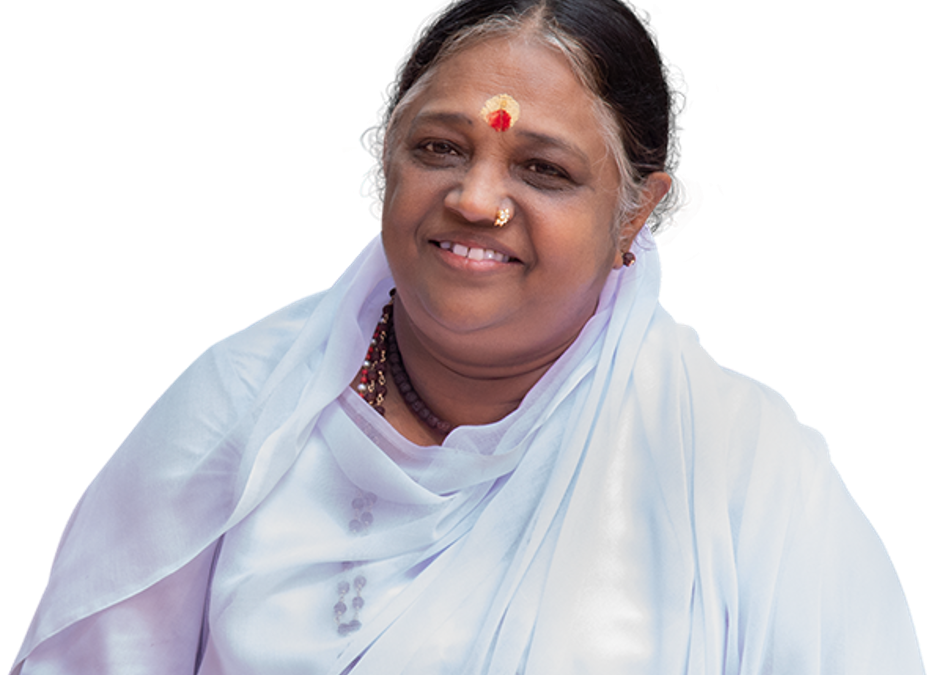
by Editor BGF | Sep 15, 2023 | News
Boston Global Forum (BGF) and Michael Dukakis Institute for Leadership and Innovation (MDI) Honor Esteemed Spiritual Leader Sri Mata Amritanandamayi Devi (Amma) with 2023 World Leader for Peace and Security Award
Celebrating Amma’s Legacy, Spiritual Values, and Leadership as Chair of C20 India 2023
Amma’s Legacy and Spiritual Values Significantly Contribute to Building AIWS – The Age of Global Enlightenment
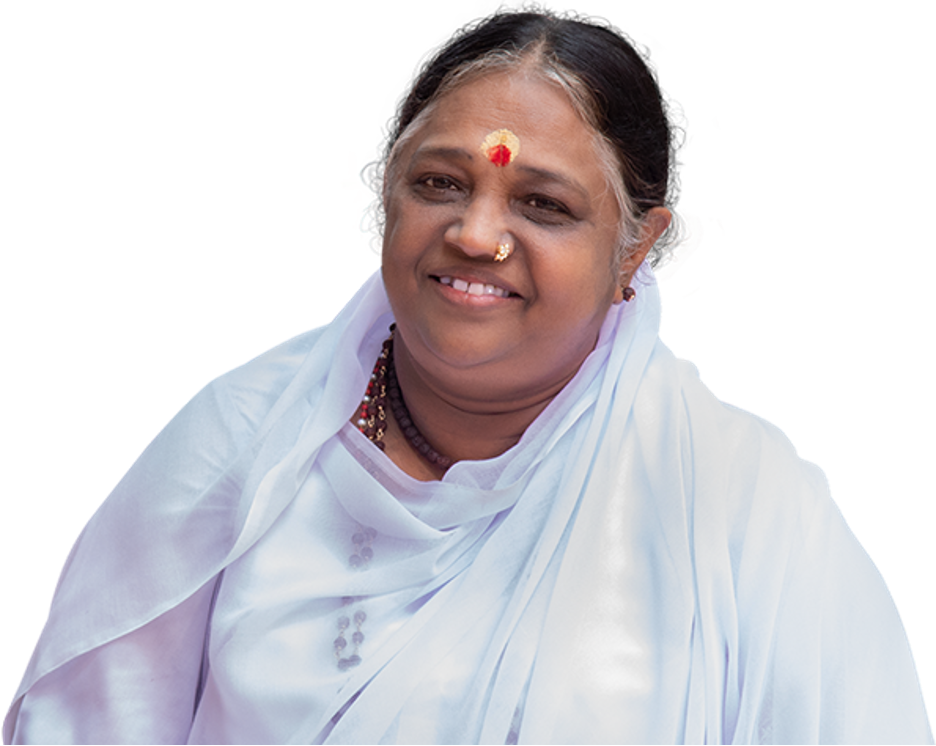
Boston, September 15, 2023 – The Boston Global Forum (BGF) and the Michael Dukakis Institute for Leadership and Innovation (MDI) proudly honor Sri Mata Amritanandamayi Devi (Amma), an esteemed spiritual leader and Chair of the Civil 20 Engagement Group of the G20. Amma is globally recognized as a symbol of hope and compassion, and she receives the prestigious 2023 World Leader for Peace and Security Award. This accolade acknowledges Amma’s profound legacy, steadfast commitment to spiritual values, and her influential role in global leadership.
Amma’s remarkable influence transcends traditional boundaries, encompassing spiritual wisdom and compassionate leadership. As Chair of C20 Summit India 2023, she advocates for unity, compassion, and collective well-being in an ever-evolving world, epitomizing the summit’s motto, “You Are the Light.” Her dedication to fostering a fair and sustainable planet aligns with the missions of world peace, security, and the mandates of BGF and MDI.
Amma’s legacy of compassion and her leadership within the C20 Summit India 2023 seamlessly align with the principles of AI World Society (AIWS) – The Age of Global Enlightenment. BGF and MDI proudly integrate Amma’s spiritual values into the fabric of AIWS, enriching the initiative’s vision for a more enlightened, compassionate, and secure world.
Governor Michael Dukakis, Chair of the Boston Global Forum, remarked, “We are profoundly honored to recognize Amma as a World Leader for Peace and Security. Her tireless efforts to promote love, compassion, and global unity are truly exemplary. Amma’s legacy will continue to inspire our collective journey towards a more harmonious world, perfectly aligning with the AIWS initiative.”
The integration of Amma’s spiritual values into AIWS represents a powerful fusion of technology and humanity, where compassion and enlightenment converge to address global challenges. As AIWS endeavors to shape a brighter future for all, Amma’s principles further empower the initiative’s ability to nurture a more ethical, secure, and equitable world. In the words of the communique issued at the C20 Summit in Jaipur, India, on July 31, “we recognize the rapid and widespread change brought about by digital transformation, offering unprecedented advancements for improving the human condition… We call for a new social contract to unite and protect an Artificial Intelligence World Society.”
With profound respect and gratitude, BGF and MDI extend their heartfelt congratulations to Amma, a guiding light in our intricate world. The legacy of her leadership and spiritual wisdom will reverberate perpetually within AI World Society – The Age of Global Enlightenment and will be introduced at the House of Honor of AIWS City.
Two significant events are on the horizon to honor Amma. On October 3, India will celebrate Amma’s 70th birthday, and on November 2, a special gathering will take place at Esteem Loeb House, Harvard University, where she will deliver a Distinguished Global Enlightenment Speech. Additionally, BGF is organizing a Global Enlightenment Concert on October 3 to pay tribute to her.
For media inquiries, please contact:
Tuan Nguyen, CEO of the Boston Global Forum
Email: [email protected]
Phone: +1 617 286 6589
Jim McManus
Email: [email protected]
Phone: +1 617 413 9232
Previous recipients of the World Leader for Peace and Security Award:
- 2015: Japanese Prime Minister Shinzo Abe and German Chancellor Angela Merkel
- 2016: Secretary General of the United Nations Ban Ki-moon
- 2017: Estonian President Toomas Hendrik Ilves
- 2018: Finnish President Sauli Niinisto
- 2019: Latvian President and President of World Leadership Alliance-Club de Madrid Vaira Vike-Freiberga
- 2020: European Commission President Ursula von der Leyen
- 2021: Swedish Parliament Speaker Andreas Norlen
- 2022: President Volodymyr Zelensky and all Ukrainian people
About Boston Global Forum (BGF): The Boston Global Forum (BGF) is an international think tank based in Boston, Massachusetts. Its mission is to convene thought leaders, policymakers, scholars, and business leaders to collaborate on critical issues impacting peace, security, and economic development.
About Michael Dukakis Institute for Leadership and Innovation (MDI): The Michael Dukakis Institute for Leadership and Innovation (MDI) is committed to fostering leadership, promoting innovation, and enhancing cooperation to address global challenges. Through research, forums, and initiatives, MDI brings leaders from diverse sectors together to develop practical solutions for a better world.
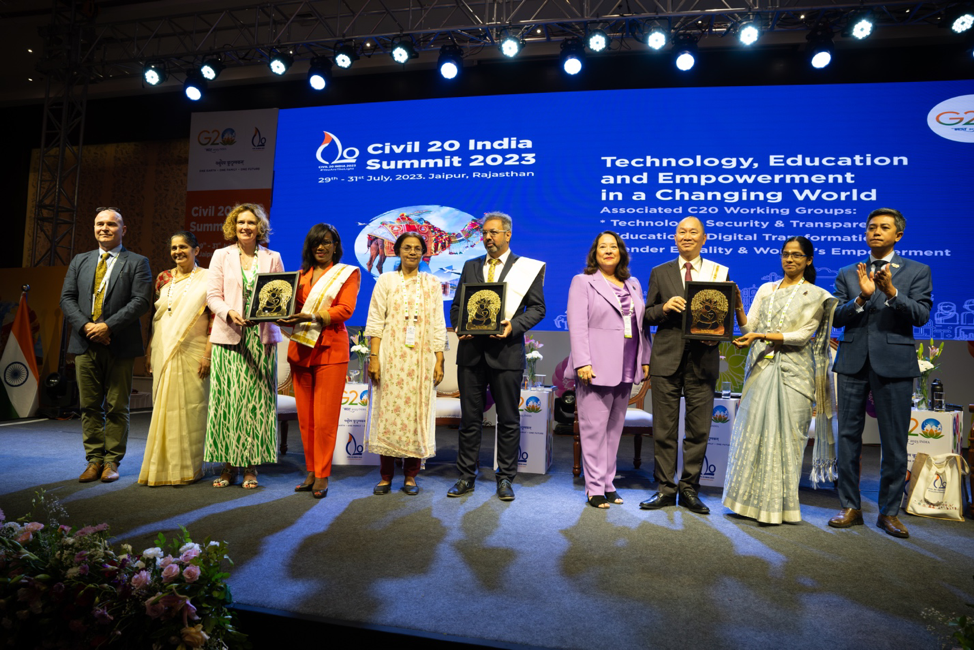
by Editor | Aug 13, 2023 | Event Updates, News
The three-day Final Summit of Civil20 (C20), an official Engagement Group of G20, came to a successful close in Jaipur. The summit resulted in the presentation of the C20 Communique, a comprehensive inclusive survey and policy recommendations developed. This significant document was handed over to the G20 Secretariat and representatives of G20.
Here is an excerpt from the C20 Communique:
“We recognize the rapid and widespread change brought about by digital transformation, offering unprecedented advancements for improving the human condition. However, we call for the recognition that education or digital technologies, when improperly or maliciously used, can fuel divisions within and between societies and countries, increase insecurity, undermine human rights, and exacerbate inequalities and fervently hope that the G20 leaders will take cognizance of this and take necessary collective action. Education on emerging technologies and collaboration between stakeholders and countries is necessary for beneficial use and mitigation of potential harm and collaboration between stakeholders and countries to deal with the ever-evolving digital environment and promote a secure and inclusive digital world. We call for a new social contract to unite and protect an Artificial Intelligence World Society.”
Mr. Nguyen Anh Tuan, the CEO of Boston Global Forum, took the stage as a distinguished keynote speaker at the C20 Summit, delivering a compelling address. He spoke about the potential of the AI World Society (AIWS) model, emphasizing its role in shaping a more promising future for the global community through AI. With profound insight, Mr. Tuan also underscored the significance of integrating the spiritual values championed by Amma, highlighting their capacity to guide us towards a world enriched by compassion, understanding, and enlightenment.
Please download the C20 Communique here.

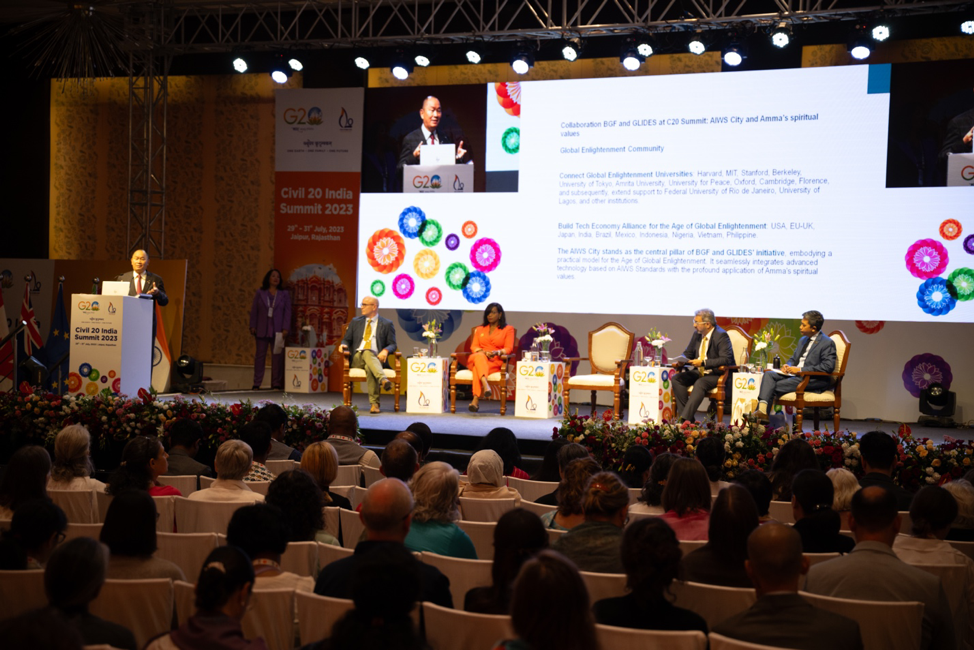
Nguyen Anh Tuan speaks at C20-G20 Summit India 2023
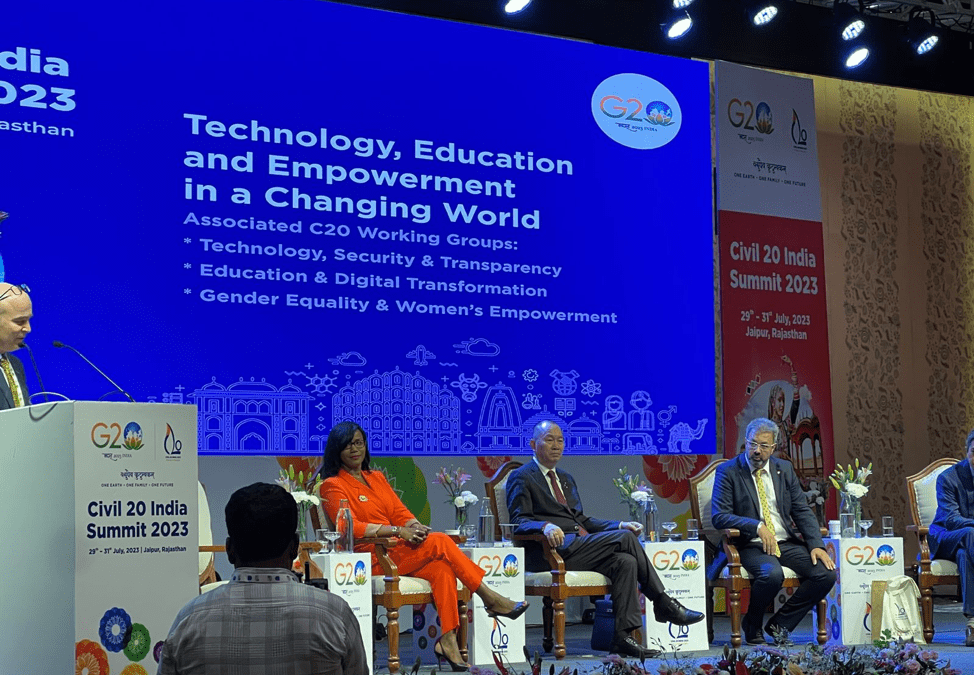
by Editor | Jul 30, 2023 | Global Alliance for Digital Governance
In recent times, the governance of AI has gained immense attention globally. Leading the charge in this domain is the Boston Global Forum (BGF), which established the AI World Society (AIWS) Initiative in 2017 for global governance of AI and Digital. Notable milestones include the AIWS-G7 Summit 2019 Initiative and the launch of the Social Contract for the AI Age and AIWS City, in collaboration with the World Leadership Alliance-Club de Madrid in September 2020. Notably, in September 2021, the AI International Accord and Global Alliance for Digital Governance (GADG) were introduced by BGF and World Leadership Alliance – Club de Madrid.
BGF Chairman Governor Michael Dukakis and BGF CEO Nguyen Anh Tuan: “The best way to solve challenges, threats, and perils from AI and Digital Transformation is to shape a new society with our innovative, pioneering ideas and concepts.”
From February to April 2023, the Boston Global Forum organized a series of BGF High-level Conferences to develop a Framework for Global Governance of AI. On April 30, 2023, BGF announced the Framework for Global Alliance of AI.
Collaborating with the Global Internet Governance, Digital Empowerment, and Security Alliance (GLIDES) of Civil20 (C20) official engagement group of India’s G20 presidency from May 12, 2023, BGF has taken further actions, encouraging civic society organizations and citizens to contribute to action plans for Global Governance of AI.
BGF and GLIDES are committed to contributing to the C20 – G20 Summit India 2023, with a focus on the following plans:
- AI-Powered Enlightenment Alliance (AIEA) for Oversight of AI Systems: Major technology companies, including Amazon, Google, Meta, Microsoft, and others, have made significant commitments to AI safeguards brokered by President Joe Biden’s White House. To ensure oversight and responsible development of the next generation of AI systems, BGF, Shinzo Abe Initiative for Peace and Security, GADG, and GLIDES have come together to form the AI-Powered Enlightenment Alliance (AIEA) and will volunteer as third-party oversight.
Please read full the report here:
https://bostonglobalforum.org/publication/special-report-on-ai-global-governance-of-the-boston-global-forum-and-the-global-alliance-for-digital-governance-and-the-global-internet-governance-digital-empowerment-and-security-alliance-glides/
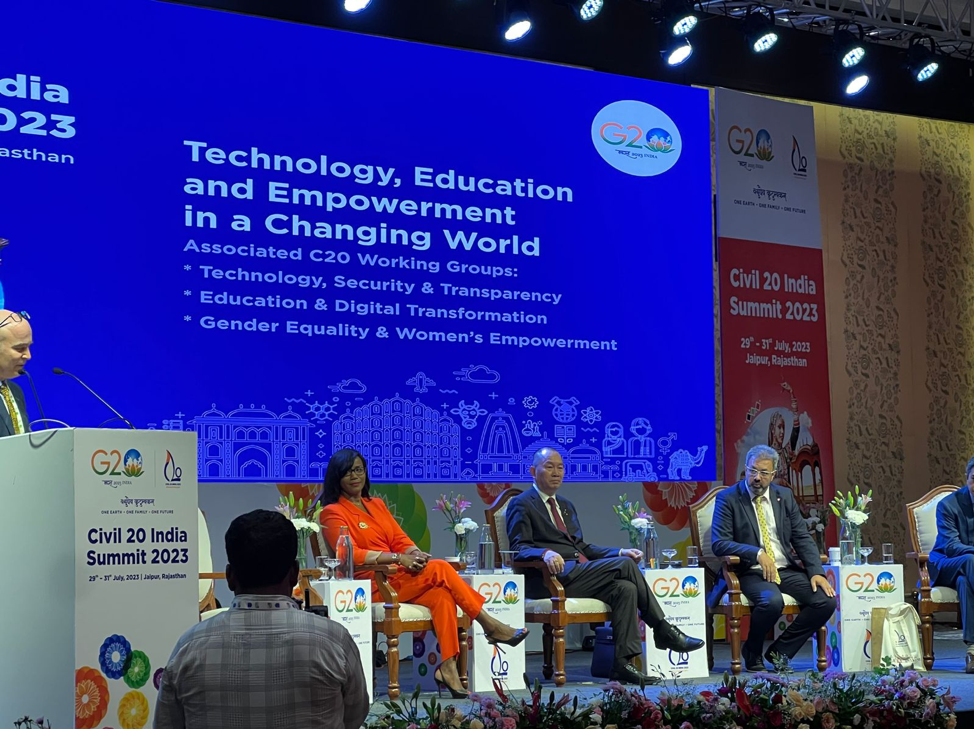

by Editor | Jul 28, 2023 | Global Alliance for Digital Governance, Papers & Reports, Publications
Download the full special report PDF here.

AI-empowered Enlightenment for Global Governance of AI
Special Report on AI Global Governance of the Boston Global Forum and the Global Alliance for Digital Governance and the Global Internet Governance, Digital Empowerment, and Security Alliance (GLIDES)
to C20 – G20 Summit India 2023
Boston, MA – Jaipur, India July 28, 2023
Contributors: Dr. Krishnashree Achuthan, Vint Cerf, Nazli Choucri, John Clippinger, Michael Dukakis, Thomas Kehler, Zlatko Lagumdzija, Enrico Letta, Dr. Prashant R. Nair, Yasuhide Nakayama, Tuan Anh Nguyen, Thomas Patterson, Alex Pentland, Alison Richards, David Silbersweig.
In recent times, the governance of AI has gained immense attention globally. Leading the charge in this domain is the Boston Global Forum (BGF), which established the AI World Society (AIWS) Initiative in 2017 for global governance of AI and Digital. Notable milestones include the AIWS-G7 Summit 2019 Initiative and the launch of the Social Contract for the AI Age and AIWS City, in collaboration with the World Leadership Alliance-Club de Madrid in September 2020. Notably, in September 2021, the AI International Accord and Global Alliance for Digital Governance (GADG) were introduced by BGF and World Leadership Alliance – Club de Madrid.
BGF Chairman Governor Michael Dukakis and BGF CEO Nguyen Anh Tuan: “The best way to solve challenges, threats, and perils from AI and Digital Transformation is to shape a new society with our innovative, pioneering ideas and concepts.”
From February to April 2023, the Boston Global Forum organized a series of BGF High-level Conferences to develop a Framework for Global Governance of AI. On April 30, 2023, BGF announced the Framework for Global Alliance of AI.
Collaborating with the Global Internet Governance, Digital Empowerment, and Security Alliance (GLIDES) of Civil20 (C20) official engagement group of India’s G20 presidency from May 12, 2023, BGF has taken further actions, encouraging civic society organizations and citizens to contribute to action plans for Global Governance of AI.
BGF and GLIDES are committed to contributing to the C20 – G20 Summit India 2023, with a focus on the following plans:
- AI-Powered Enlightenment Alliance (AIEA) for Oversight of AI Systems: Major technology companies, including Amazon, Google, Meta, Microsoft, and others, have made significant commitments to AI safeguards brokered by President Joe Biden’s White House. To ensure oversight and responsible development of the next generation of AI systems, BGF, Shinzo Abe Initiative for Peace and Security, GADG, and GLIDES have come together to form the AI-Powered Enlightenment Alliance (AIEA) and will volunteer as third-party oversight.
- Empowering Citizens and CSOs for global governance of AI, Internet and development of data economy:
MIT professor Alex Pentland: “Data is a new primary means of production, along with capital, labor, and land. If we establish equitable data rights, and enable easy audit of data use, we can control AI and bend the digital economy to better serve society.”
BGF CEO Nguyen Anh Tuan: ”Citizens are empowered through the AIWS model, data economy and global enlightenment education, uniting their voices as power of users, market forces, and innovators.”
AIEA actively promotes collaboration with citizens and civic society organizations, while also establishing the Tech Enlightenment Economy Alliance to support global governance of AI, Internet and create opportunities in AI and data economy, enabling every citizen to become an innovator. It emphasizes the practical application of AIWS concepts to foster peace, security, and the greater good in the realms of AI, world-wide web and digital technology. During the initial phase, AIEA focuses on partnering with 10 countries, namely the US, EU-UK, Japan, India, Brazil, Nigeria, Mexico, Indonesia, Vietnam, and the Philippines. Together, they strive to shape a future where the potential of AI is harnessed for the benefit of all and to promote a thriving digital ecosystem that empowers individuals and societies alike.
- AI-Powered Enlightenment Framework: AI pioneers and scholars like MIT professor Alex Pentland, AI pioneer Thomas Kehler, and Harvard professor David Silbersweig emphasize the importance of equitable data rights, transparency, and a new AI framework that integrates with human collective intelligence. AIEA supports to build AI-powered Enlightenment Framework as a new AI framework that integrates with and engages human collective intelligence. The AI-powered Enlightenment Framework is grounded in neuroscience and is based on the laws of living physics.
AI pioneer Thomas Kehler: “The tremendous power of generative AI is currently is dangerous because of a lack of data provenance and transparency. We must swiftly move forward to adopting a new AI framework that integrates with and engages humancollective intelligence. The new framework is grounded in neuroscience and is based on the laws of living physics. While not on the public radar, such technology is available and will build a safe framework for future development.”
Harvard professor David Silbersweig: “Like other transformative technologies, AI can be used for good or ill. The human brain mind and society have pro-social and anti-social elements. Given the powerful ability of AI to accelerate and scale human intentions and to potentially adopt goals of its own, it is imperative that we shape the development and deployment of AI, informed by ethical and the latest integrated understanding of the brain-mind and complex systems.”

Thomas Kehler’s figure
- Addressing Misinformation and Disinformation and Cybercrime: Misinformation and disinformation remain significant concerns in the digital age. Tackling these complex issues requires the united efforts of various social forces and governments. AIEA takes a proactive approach by organizing dialogues with religious leaders from Christianity, Islam, Hinduism, Buddhism, and Judaism. Additionally, it seeks cooperation with governments from the US, EU-UK, Japan, India, Brazil, Nigeria, Mexico, Indonesia, Vietnam, and the Philippines to effectively combat these challenges. BGF and Amrita University will collaborate as residents of this event, providing valuable insights and expertise.
The AI-Powered Enlightenment Framework assumes a crucial role in devising technical solutions to address misinformation, disinformation, and cybercrime effectively. This framework aims to curtail the spread of false information and protect individuals and societies from harmful online activities. Through international collaboration and collective action, the AI-Powered Enlightenment Framework strives to create a safer and more reliable digital space for all.
- Resources: The Global Enlightenment Community, comprising distinguished scholars from prestigious universities such as Harvard, MIT, Stanford, and more, along with contributions from former presidents and prime ministers, play a vital role in supporting these action programs. The Global Enlightenment Mountain (GEM) connects research centers and labs of universities and companies to provide technological support for oversight and the AI-Powered Enlightenment Framework.
Through the collaborative efforts of the AI-Powered Enlightenment Alliance, BGF, GLIDES, and various global partners, the vision for an AI-powered enlightened society – AIWS – an Age of Global Enlightenment, becomes increasingly attainable, steering the world towards a more ethical, secure, and equitable future in the realm of AI governance.
References:
Boston Global Forum
https://bostonglobalforum.org/about/
GLIDES
https://c20.amma.org/tst-wg/global-internet-governance-digital-empowerment-and-security-alliance-glides/
AI World Society (AIWS)
https://bostonglobalforum.org/initiatives/aiws-and-the-age-of-global-enlightenment/
AIWS City
https://bostonglobalforum.org/initiatives/aiws-city-and-rebuilding-ukraine/
https://un100.net/recognitions/aiws-city/aiws-city-as-a-test-model-for-the-aiws-innovative-ecosystem/
https://clubmadrid.org/club-de-madrid-and-the-boston-global-forum-advocate-for-a-social-contract-for-the-ai-age/
Global Enlightenment Community (GEC)
https://bostonglobalforum.org/global-alliance-for-digital-governance/statement-of-global-enlightenment-community-from-words-to-actions-the-urgency-for-government-action/
Global Enlightenment Mountain (GEM)
https://bostonglobalforum.org/event-updates/building-the-global-enlightenment-mountain-a-silicon-valley-in-ai-world-society/
GADG: co-founded by BGF and Club de Madrid
https://clubmadrid.org/a-rights-based-agenda-for-the-governance-of-ai-and-digital-societies-building-the-age-of-global-enlightenment/
https://clubmadrid.org/work/policy-labs/policy-lab-transatlantic-approaches-on-digital-governance-a-new-social-contract-on-artificial-intelligence/
Shinzo Abe Initiative for Peace and Security
https://bostonglobalforum.org/shinzo-abe-initiative-for-peace-and-security/
BGF Framework for Global Governance of AI
https://bostonglobalforum.org/wp-content/uploads/BGF-Framework-for-AI-Governance-Official-30-4-2023.pdf
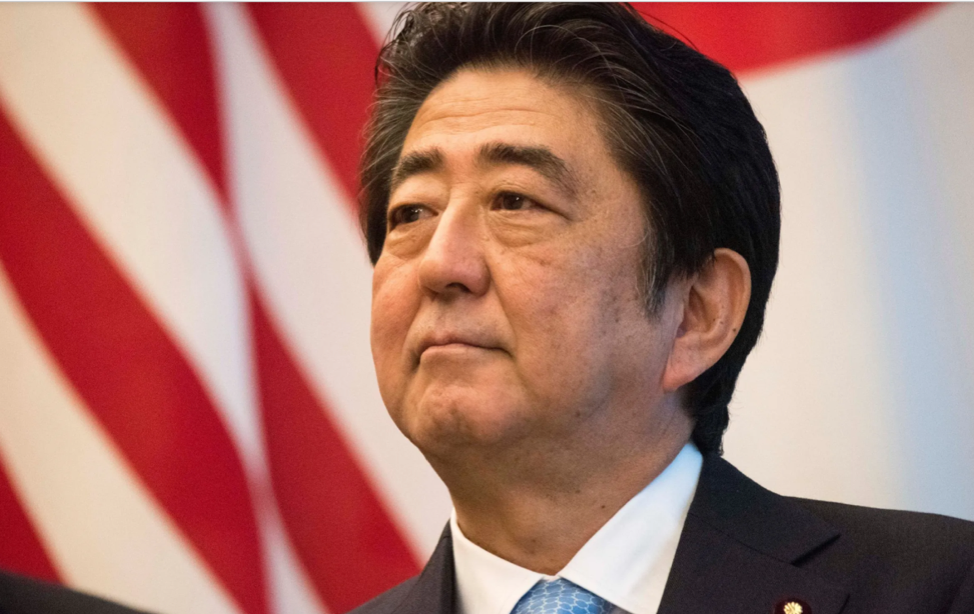
by Editor | Jul 17, 2023 | Global Alliance for Digital Governance
Throughout history, humanity always paid a steep price to tyrants who wield unchecked power.
Totalitarian regimes, characterized by their lack of accountability and transparency, continue to pose a great peril to humanity.
Hitler is the most major example, inflicting the horrors of Nazi Germany on the world. Today, we witness Putin causing terrible suffering to the people of Ukraine.
The COVID-19 pandemic, originating in China where the totalitarian government has little regards for their citizens, has killed tens of millions of people around the world, serves also as a stark reminder of this danger.
One of the gravest concerns lies in China’s utilization of its market power to coerce foreign companies operating within its borders to compromise democratic values and the principles of civilized humanity, while China itself undermining and devaluing the essence of democracy. Recently, Vietnam and several Asian countries expressed concerns over China’s insistence that businesses operating in China accept maps issued by the Chinese government featuring the contentious 9-dash line in the South China Sea—a claim that has been invalidated by International Tribunal for the Law of the Sea. This flagrant violation of the sovereignty of Vietnam, the Philippines, and other Southeast Asian nations by the totalitarian of China is deeply alarming.
Additionally, we observe an increasing incidences of data coercion and privacy infringement of foreign companies doing business in China, accompanied by rising restrictions on exposing the wrongdoings of the Chinese government. The Chinese regime consolidates economic power and the resources of a major nation to serve an extreme nationalist ideology, captivating the Chinese populace through indoctrinating policies and information control which deviate from the values outlined in The Social Contract for the AI Age. These policies further the ambition of the Chinese Communist leaders, whose goal is to undermine the rules-based order and dominate the global order.
The Global Alliance for Digital Governance and Shinzo Abe Initiative for Peace and Security urgently warns of these visible threats and implores all civilized and progressive people to take immediate action to confront these perils:
- Establishing a unified community with democratic and civilized standards, forming a market block among democratic nations, with the United States, Japan, the European Union, and India as pillars. This community should include all countries and individuals who respect and uphold the values of democracy and progress.
- Exposing, boycotting, and refusing to engage with companies driven solely by profit and willing to compromise the principles of civilized and progressive humanity, when they acquiesce the demands of the Chinese government to undermine and devalue democracy. The Global Alliance for Digital Governance and Shinzo Abe Initiative for Peace and Security will compile and publish a list of such companies.
It is imperative that the democratic world acts swiftly to counter the threats and perils posed by the Chinese Communist Party before it is too late.
July 14, 2023
Yasuhide Nakayama, Former Japanese State Minister of Foreign Affair and Minister of Defense, Coordinator of the Shinzo Abe Initiative in Japan
Nam Pham, Former Assistant Secretary of Business Development & International Trade, Massachusetts Government

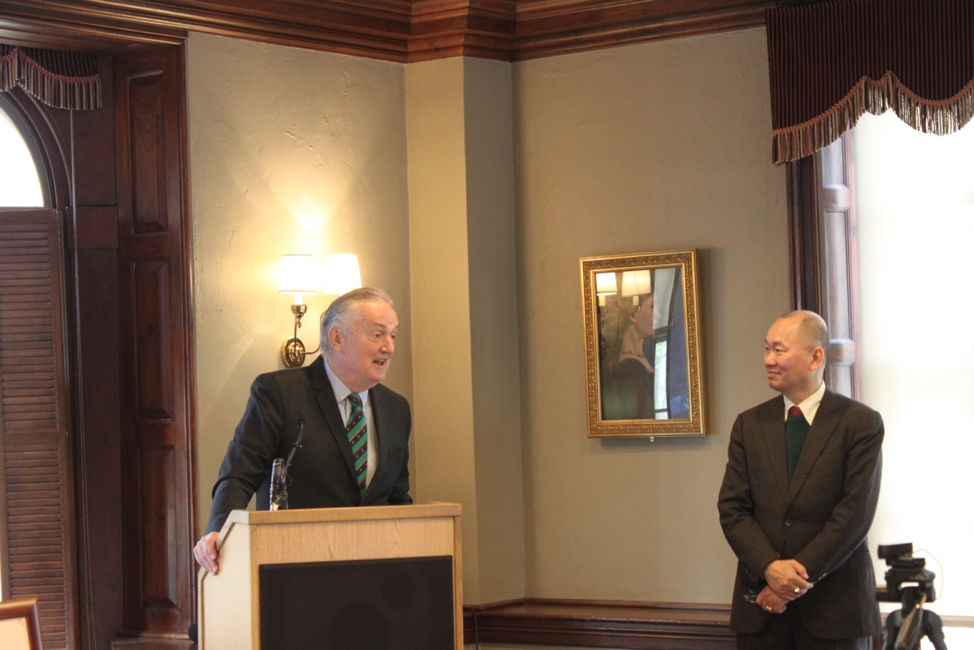
by Editor | Jul 9, 2023 | News
Boston, MA – July 7, 2023 – Zlatko Lagumdzija, the former Prime Minister of Bosnia and Herzegovina and a Global Enlightenment Leader, a distinguished contributor to the book “Remaking the World – Toward an Age of Global Enlightenment,” Co-author of “Social Contract for the AI Age”, and Co-founder of AIWS City, has been appointed as the Permanent Representative of Bosnia and Herzegovina to the United Nations. In addition to this role, Lagumdzija has also been designated as the Coordinator of the Ambassadors for Global Enlightenment Program at the Boston Global Forum, a role that reflects his commitment to building the Age of Global Enlightenment.
As Coordinator of the Ambassadors for Global Enlightenment Program at the Boston Global Forum, Ambassador Lagumdzija will play a crucial role in shaping the direction of this initiative. The Global Enlightenment Program aims to gather influential diplomats and leaders from around the world to work collectively towards creating an Age of Global Enlightenment. This program recognizes the need for global cooperation, ethical decision-making, and the responsible use of technology in order to address the pressing challenges faced by humanity.
Lagumdzija’s appointment highlights his exceptional leadership abilities and dedication to promoting Global Enlightenment. The Boston Global Forum is honored to have Zlatko Lagumdzija as a distinguished member of its team. His deep understanding of international affairs, coupled with his profound insights into the challenges and opportunities of the modern world, will contribute significantly to the success of the Ambassadors for Global Enlightenment Program.
Media Contact:
Nguyen Anh Tuan, CEO of Boston Global Forum
Phone: 617-286-6589
Email: [email protected]
Reference:
United Nations News:
https://press.un.org/en/2023/bio5502.doc.htm

Prime Minister Zlatko Lagumdzija speaks at a BGF Conference
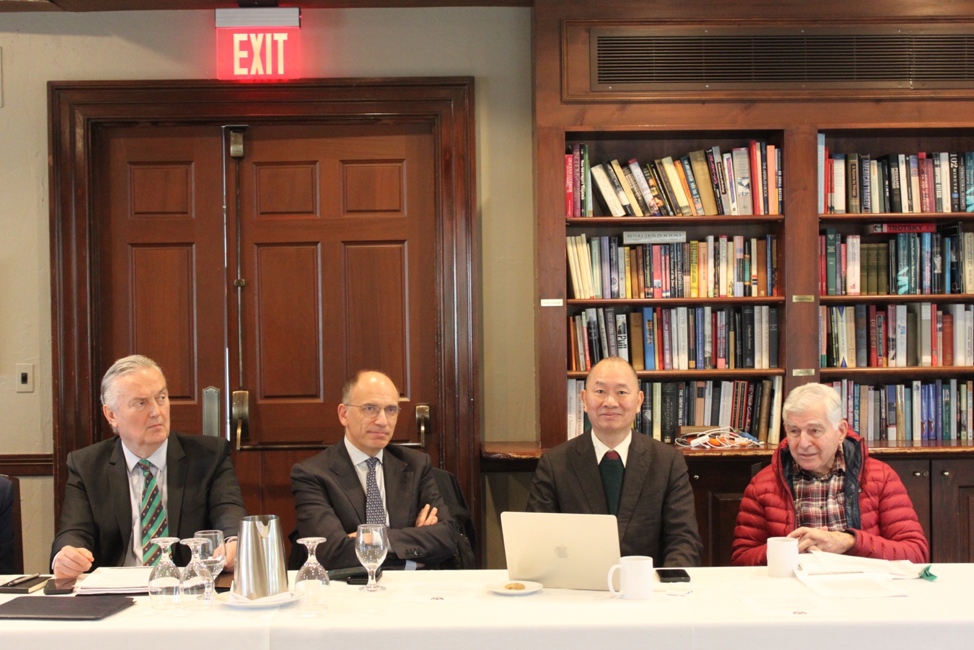
Prime Minister Zlatko Lagumdzija with Global Enlightenment Leaders at a BGF Conference













